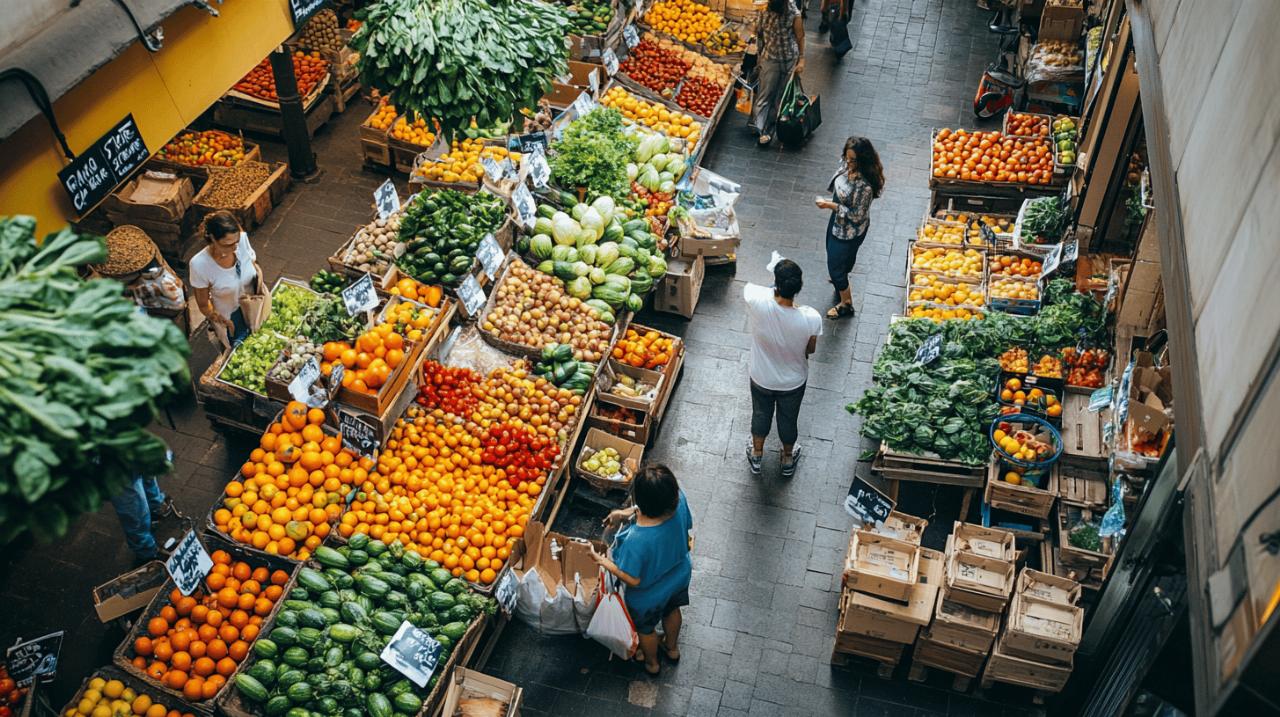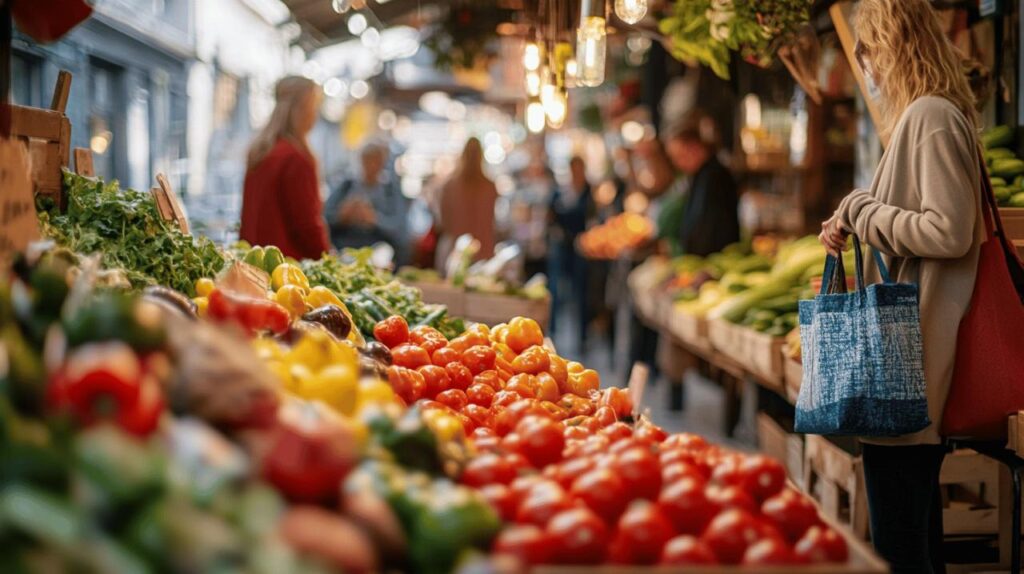As shoppers increasingly seek to align their purchasing decisions with their values, the landscape of organic products has evolved dramatically. The organic market in the United Kingdom has demonstrated remarkable resilience and growth, expanding for an impressive twelve consecutive years despite economic headwinds. With the sector now valued at approximately three point two billion pounds as of 2023, nearly double its worth in 2011, consumers have more choices than ever when it comes to selecting brands that prioritise both environmental stewardship and ethical practices. This comprehensive exploration delves into the certifications, leading brands, and tangible benefits that define organic shopping in 2024, offering practical guidance for those committed to making responsible choices.
Understanding Organic Certification and What It Means for Your Shopping Basket
Decoding organic labels: soil association, eu organic, and beyond
Navigating the array of organic labels can initially seem daunting, yet understanding these certifications is fundamental to making informed purchasing decisions. The Soil Association Certification stands as one of the most recognised and rigorous organic standards in the United Kingdom. This body not only certifies products but also actively promotes the expansion of organic farming practices across the nation. When you spot the Soil Association logo on a product, it signifies adherence to stringent guidelines covering everything from soil health to animal welfare. Alongside this, the EU Organic label provides a harmonised standard across European markets, ensuring that products meet baseline requirements for organic production. These certifications serve as a guarantee that the items in your basket have been produced without synthetic pesticides, artificial fertilisers, or genetically modified organisms. The presence of such labels offers reassurance to the ethical consumer who seeks transparency and accountability in the food chain.
The rigorous standards behind certified organic products
Behind every organic label lies a comprehensive framework of standards designed to protect both the environment and consumer wellbeing. Organic farming regulations mandate the use of natural methods to maintain soil fertility and control pests, fostering biodiversity and reducing chemical runoff into waterways. Farmers must demonstrate supply chain transparency, ensuring that every stage of production adheres to organic principles. This includes not only crop cultivation but also the treatment of livestock, with strict requirements for access to pasture, quality feed, and humane living conditions. The certification process involves regular inspections and audits, with research findings influencing a company's rating for up to five years. Such rigorous oversight ensures that claims of organic integrity are substantiated by tangible practices. For consumers, this means that choosing certified organic products directly supports farming systems that prioritise ecological balance, animal welfare, and the long-term health of agricultural landscapes.
Top Organic Food Brands Leading the Sustainability Movement in 2024
Established Names: Abel & Cole and Riverford's Commitment to Regenerative Agriculture
Among the stalwarts of the organic movement, Abel & Cole and Riverford have consistently demonstrated leadership in sustainable farming and supply chain ethics. These established brands have built their reputations on a foundation of regenerative agriculture, a philosophy that goes beyond organic certification to actively restore and enhance ecosystem health. Abel & Cole sources directly from farmers who employ practices such as crop rotation, composting, and minimal tillage, all of which contribute to carbon sequestration and soil vitality. Riverford, similarly, operates its own organic farms and works closely with a network of growers who share a commitment to environmental impact reduction. Both companies have embraced subscription services, making it convenient for households to receive seasonal produce boxes delivered directly to their doors. This model not only reduces packaging and food miles but also supports local organic farmers by providing them with a stable market for their harvests. The online organic sales channel has proven particularly robust, accounting for twenty-two per cent of all organic supermarket sales and reflecting a growing consumer preference for the convenience and reliability of home delivery.
Emerging brands making waves with innovative sustainable practices
While established names continue to set the bar, a new generation of organic brands is making significant strides with fresh approaches to sustainability. Companies such as Wild Deodorant and Fill are pioneering refillable and compostable products, addressing the urgent need to reduce plastic waste. Wild Deodorant, for instance, offers a reusable case paired with compostable refills, dramatically cutting down on single-use packaging. Fill specialises in eco-friendly cleaning solutions that come in concentrated forms, allowing consumers to refill containers at home and minimise transportation emissions. Meanwhile, Composty has established itself since 2021 as a champion of household sustainability, planting trees to offset carbon emissions equivalent to over three hundred and twenty tonnes annually and helping more than fifty-five thousand households transition to greener cleaning routines. Fruu takes an innovative approach by upcycling surplus fruit into skincare products, turning potential food waste into valuable resources. These emerging brands not only embody the principles of organic farming but also tackle broader environmental challenges such as plastic waste reduction and carbon offsetting, demonstrating that ethical consumer choices can drive meaningful change across multiple fronts.
The Environmental and Health Benefits of Choosing Organic Products
How organic farming reduces pesticide exposure and supports biodiversity
 One of the most compelling reasons to choose organic products lies in their capacity to reduce pesticide exposure for both consumers and the ecosystems that produce them. Conventional agriculture often relies heavily on synthetic chemicals to manage pests and diseases, resulting in residues on produce and contamination of soil and water resources. Organic farming, by contrast, employs natural pest management techniques such as companion planting, beneficial insect habitats, and biological controls, which minimise the need for harmful substances. This approach not only protects those who consume the food but also safeguards farmworkers and surrounding communities from chemical exposure. Beyond human health, organic practices play a vital role in supporting biodiversity. By avoiding synthetic inputs and fostering diverse crop rotations, organic farms create habitats for pollinators, soil microorganisms, and a wide range of wildlife. The climate rating of organic farming systems is notably favourable, as these methods often result in lower carbon emissions compared to conventional agriculture. The integration of cover crops and reduced tillage further enhances carbon sequestration, contributing to broader efforts to mitigate climate change and preserve natural ecosystems for future generations.
One of the most compelling reasons to choose organic products lies in their capacity to reduce pesticide exposure for both consumers and the ecosystems that produce them. Conventional agriculture often relies heavily on synthetic chemicals to manage pests and diseases, resulting in residues on produce and contamination of soil and water resources. Organic farming, by contrast, employs natural pest management techniques such as companion planting, beneficial insect habitats, and biological controls, which minimise the need for harmful substances. This approach not only protects those who consume the food but also safeguards farmworkers and surrounding communities from chemical exposure. Beyond human health, organic practices play a vital role in supporting biodiversity. By avoiding synthetic inputs and fostering diverse crop rotations, organic farms create habitats for pollinators, soil microorganisms, and a wide range of wildlife. The climate rating of organic farming systems is notably favourable, as these methods often result in lower carbon emissions compared to conventional agriculture. The integration of cover crops and reduced tillage further enhances carbon sequestration, contributing to broader efforts to mitigate climate change and preserve natural ecosystems for future generations.
Nutrient Density and Wellbeing: Why Organic Produce Matters for Your Health
The health benefits of organic produce extend beyond the absence of synthetic chemicals to encompass superior nutrient density and overall wellbeing. Studies have indicated that organic fruits and vegetables can contain higher levels of certain vitamins, minerals, and antioxidants compared to their conventionally grown counterparts. This nutritional advantage is attributed to the healthier soil conditions fostered by organic farming, which enable plants to absorb a richer array of nutrients. For consumers, this translates into produce that not only tastes better but also provides enhanced nourishment. The emphasis on animal welfare within organic standards also means that organic dairy and meat products often come from livestock raised in humane conditions, with access to outdoor spaces and diets free from routine antibiotics and growth hormones. These factors contribute to products that are not only ethically produced but also potentially healthier for consumption. Moreover, the transparent supply chain transparency inherent in organic certification allows consumers to trace the origins of their food, fostering trust and confidence in the products they choose. As awareness of the links between diet, health, and environmental sustainability grows, the decision to select organic products becomes an investment in personal and planetary wellbeing.
Making informed choices: practical tips for ethical organic shopping
Balancing Budget and Values: Where to Prioritise Organic Purchases
While the benefits of organic products are clear, budget considerations remain a reality for many households. Prioritising which items to purchase organically can help balance financial constraints with ethical values. Certain types of produce, often referred to as high-residue crops, tend to carry greater levels of pesticide residues when grown conventionally and are therefore strong candidates for organic purchase. These include soft-skinned fruits such as berries and stone fruits, leafy greens, and root vegetables. By focusing your organic spending on these items, you maximise the health and environmental benefits of your choices. Conversely, produce with thicker skins or peels that are typically discarded may carry lower pesticide exposure risks, making them less critical for organic selection. Additionally, buying in bulk, choosing seasonal produce, and taking advantage of subscription services can offer cost savings while supporting sustainable brands. Many ethical brands now offer free delivery on orders over thirty pounds, and some provide discounts of up to ten per cent for subscribers, making organic shopping more accessible. The growth of independent shops, which saw a ten per cent increase in organic sales, also presents opportunities to discover local suppliers who may offer competitive pricing and personalised service.
Supporting local organic farmers and reducing your carbon footprint
Supporting local organic farmers represents a powerful way to reduce your carbon footprint while contributing to the vitality of regional food systems. Currently, only three per cent of UK farmland is dedicated to organic production, necessitating significant imports to meet domestic demand. By choosing locally sourced organic products, you help stimulate the market for homegrown organic agriculture and encourage more farmers to transition to sustainable practices. Farmers' markets, community-supported agriculture schemes, and regional box delivery services offer direct access to fresh, seasonal produce while minimising the food miles associated with long-distance transportation. This not only reduces carbon emissions but also ensures that more of your spending supports the livelihoods of farmers committed to responsible sourcing and fair wages. The Soil Association Certification has called for a radical rethink of agricultural policy to make organic farming more widespread, with government support playing a crucial role in this transition. As a consumer, your purchasing decisions send a clear signal to policymakers and retailers about the demand for sustainable food systems. By prioritising organic, locally grown products, you contribute to a more resilient and environmentally sound food economy, one that values workers' rights, animal welfare, and the long-term health of the land. The collective impact of informed, ethical consumer choices has the potential to drive systemic change, making organic and sustainable agriculture the norm rather than the exception.


